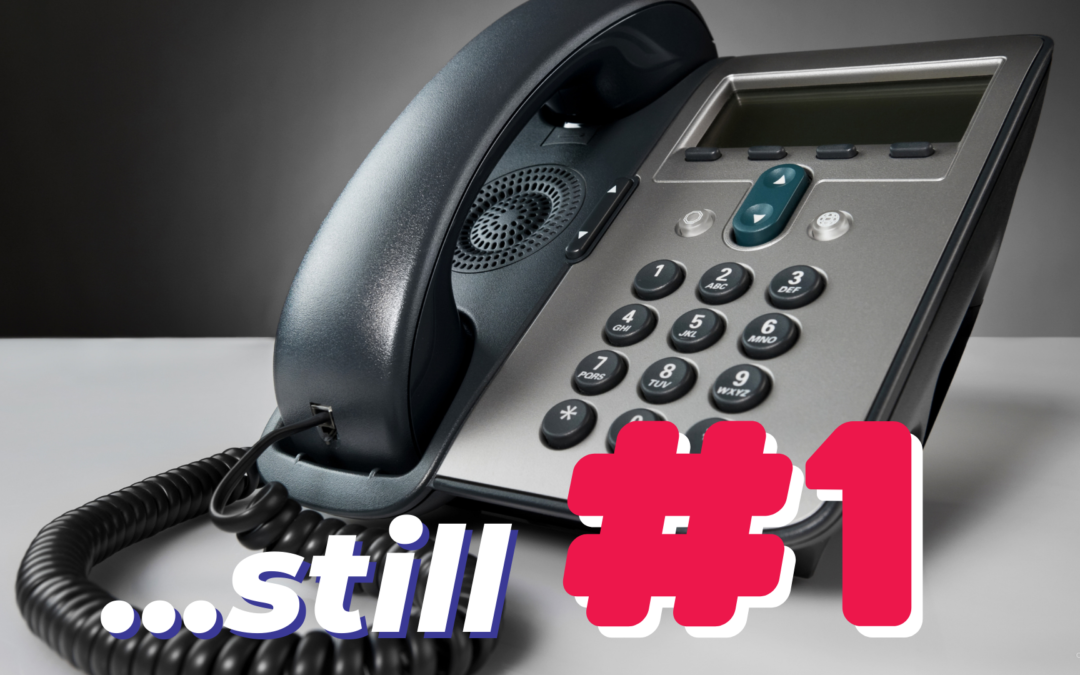In the age of digital technology, one might assume that emails and text messaging are quickly phasing out traditional phone communication. Surprisingly, this isn’t necessarily true – phones remain a significant part of business operations between organizations and within offices. From growing startups to international conglomerates, businesses across industries find that utilizing telephone systems offers unbeatable versatility and security while remaining cost-effective. It’s no wonder companies continue relying on telephones for efficient communication.
A survey of 350 IT decision-makers by Ringcentral revealed how they currently use voice communication and their plans for the future. It uncovered some fascinating perspectives that made one thing clear: businesses are increasingly leveraging voice technology to enhance collaboration, efficiency, and productivity.

The Benefits of Using a Phone for Business Communications
Phones are invaluable in communication because they allow two people to talk in real-time without lag or buffering issues. This makes them ideal for engaging in conversations that require quick solutions or decision-making. Additionally, phones allow users to pick up on subtle cues such as tone and inflection. These signals can be beneficial when trying to close a deal or negotiate terms.
Another key benefit of using a phone for business communications is that it gives users complete control over their conversations. With email and text messaging, you have no idea how long it will take for your message to be read or responded to – but with a phone call, you can get an immediate response. This means less time waiting around and more time getting stuff done!
Finally, speaking on the phone also helps build relationships. Hearing someone’s voice allows you to form an emotional connection with them that would otherwise not be possible through written communication alone. This can help foster trust between two parties and make doing business easier in the future.

The Power of Tone and Nuance
The primary benefit of using a phone for business communication is that you can use tone and nuance to convey messages. Emails, text messages, and chat messages are great for conveying facts and data points, but they lack emotional context. That’s where a good old-fashioned telephone conversation comes into play. It allows you to provide context to the information you’re sharing in a way that no other medium can match.
This is especially important when dealing with difficult conversations or customer service issues; hearing someone’s voice gives you an insight into how they feel about a particular issue or situation, which can make all the difference when it comes time to resolve an issue. With digital communications, this kind of nuance is impossible; talking on the phone provides far more insight than words on a screen ever could.

A Sense of Urgency
Phone calls also offer a sense of urgency that emails lack; when someone calls you with something important, it generally means they need an immediate response or solution. This added level of urgency allows conversations to happen quickly and efficiently without waiting hours or days for someone to respond like you would with an email or text message. For impatient entrepreneurs who hate waiting for responses from their team members or clients, having access to this immediacy can be invaluable.

Personalization
One of the unique benefits offered by telephone communication is its personal touch. You can build relationships with clients over the phone more easily than through other methods because you can hear their voice, inflection, and passion for their work directly from them rather than relying on text-based messages alone. Studies have shown that customers prefer speaking with someone directly instead of relying solely on digital communications; this means that using the phone could help improve customer satisfaction ratings and sales numbers!
It’s Not Just about Cost
The first thing that comes to mind when people think about why phones remain so popular is cost. But while cost certainly plays a role in the decision-making process, it’s not always the deciding factor. Many businesses opt for more expensive solutions because they offer better features and reliability. So if cost isn’t the primary consideration, what is?

Ease of Use
When it comes down to it, most businesses choose phones for their ease of use. No matter how advanced technology gets, nothing can replace the simplicity and convenience of picking up a phone and dialing a number. With a few clicks of a button or taps on a screen, you’re connected with your customer or colleague without worrying about technical issues like internet outages or connection problems. You don’t have to be tech-savvy to use it; anyone can pick up a phone and call without any specialized training or knowledge required.

Flexibility
Another key factor in why phones are still such an important part of business communication is their flexibility in terms of usage and customization options. Companies can easily tailor their phone systems to meet their needs and requirements by adding additional lines or features like voicemail boxes or extensions for remote workers. And because phones are so easy to use, companies can quickly switch from one system to another with minimal disruption or downtime.
Security
Another advantage of using phones is that they provide an additional layer of security that digital communication tools cannot match. Digital messages can easily be hacked or intercepted by unauthorized parties. At the same time, conversations held over the phone remain completely secure due to encryption technology and other measures taken by telecom providers. Businesses can rest assured knowing that any sensitive information discussed over the phone remains safe from prying eyes.

CONCLUSION
It’s clear that while digital communication tools offer convenience and speed in many cases, they cannot match the personalization offered by using a telephone for business communication purposes. The telephone remains king when building relationships with customers and resolving important issues quickly—two key components for any successful business venture! Moreover, with today’s technology advancements, such as VoIP services or call forwarding features, businesses can maximize their use of phones while still taking advantage of modern technological advances like cloud computing or automated customer support systems.
Phones remain an indispensable tool for business communication due to their ease of use, flexibility, and low learning curve. They offer reliable connections with no need for complex configurations or technical know-how; plus, they provide companies with plenty of customization options so that each system fits their unique needs perfectly.
So don’t forget that when it comes down to effective business communication – you should pick up the phone!


Recent Comments